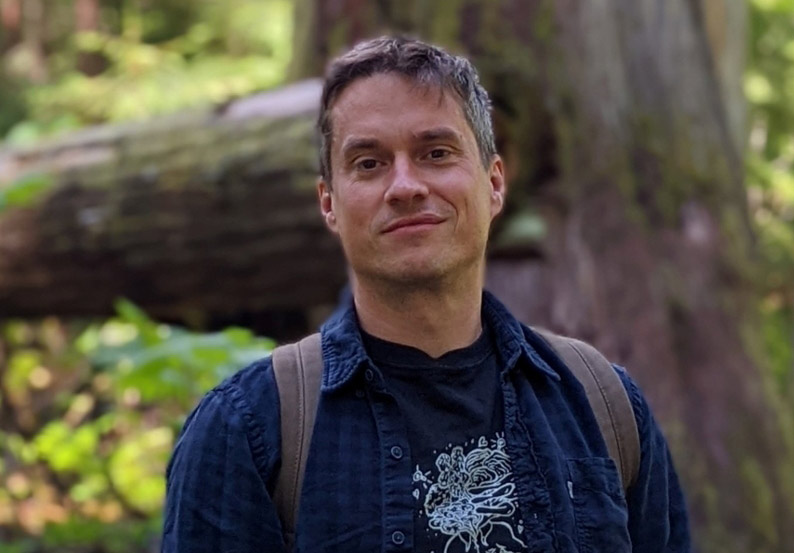New research by UNB professor suggests our future may be even warmer than we think
Author: UNB Newsroom
Posted on Aug 18, 2022
Category: UNB Fredericton

In a new paper published in Nature and announced recently, a group of researchers has identified a troubling new finding in the fight against climate change. Findings suggest that a key assumption about the ability of forests to sequester more carbon as climate changes may not hold true.
Dr. Loïc D’Orangeville, a forestry and environmental management professor at the University of New Brunswick in Fredericton, is one of the paper’s authors.
“Our findings are pretty significant, and not in a good way,” he said. “They suggest that current models could be underestimating the rate of warming and the ability of our forests to protect us against the worst-case scenarios.”
According to Dr. D’Orangeville, current climate change models assume that temperate deciduous forests – a type of forest that includes maples and birches and makes up a large part of New Brunswick’s forests – will grow more as temperatures increase and extend the growing season. This increased growth would increase the amount of carbon sequestered from the atmosphere, decreasing the rate of warming.
Carbon sequestration is the name given to the process of removing carbon dioxide from the atmosphere and storing it, in this case, in the tree itself. It is a natural part of photosynthesis.
Monitoring the stem growth of hundreds of trees over multiple years allowed the researchers to track the start and end of growth for each tree under various climate conditions across North America.
“Although climate change does induce a longer growing season, we observed that while trees started growing earlier, they also stopped earlier as well,” said Dr. D’Orangeville. “Because trees only shifted and did not lengthen their total growth, we are unlikely to see the gain in carbon sequestration assumed by climate change models. This further highlights the need for our society to reduce its carbon emissions and not rely on nature to do the job for us.”
This discovery has only spurred the researchers to investigate further: Dr. D’Orangeville is presently monitoring trees around Fredericton to see how New Brunswick trees are reacting to warming and whether the pattern observed in the American sites studied holds for our province.
The research was led by scientists at the Smithsonian’s National Zoo and Conservation Biology Institute and included partners at six other institutions, including UNB. The article, titled “Warmer spring temperatures in temperate deciduous forests advance the timing of tree growth but have little effect on annual woody productivity,” appears in in Nature 608, pages 552–557 (2022).
Media contact: Jeremy Elder-Jubelin
